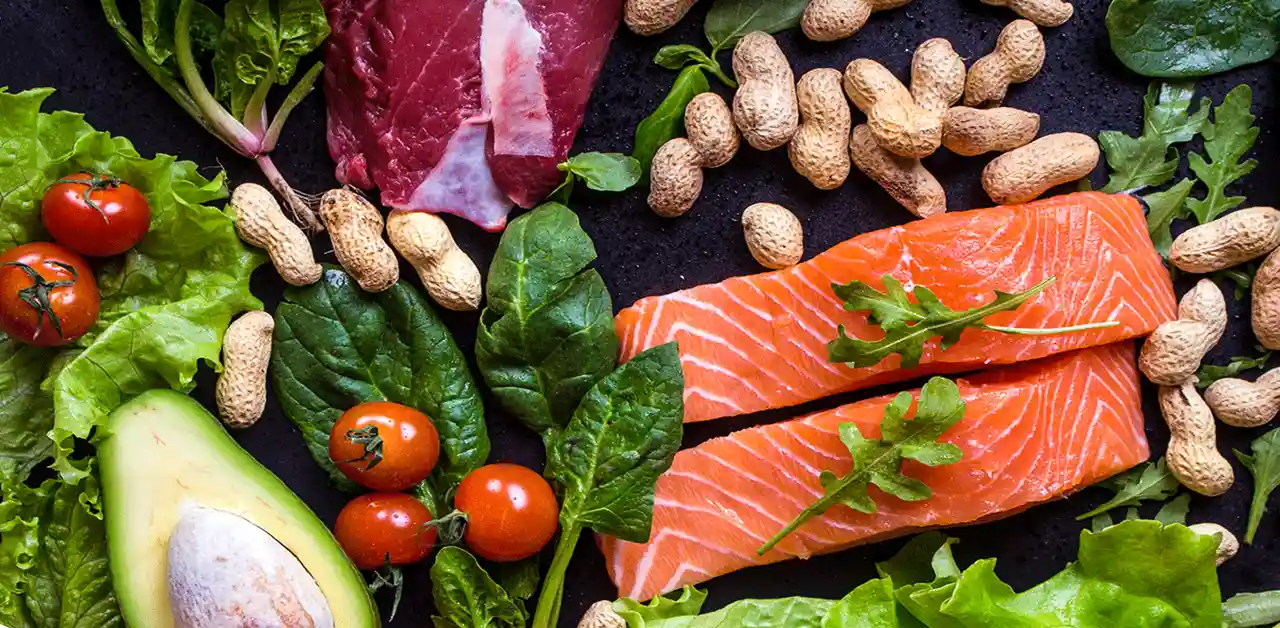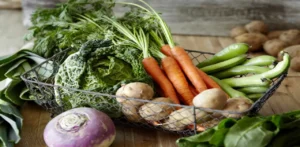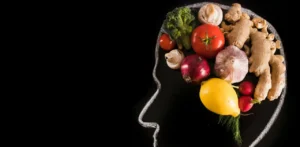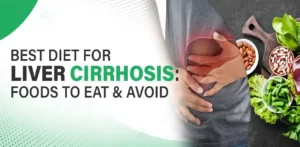Contents
Breast cancer is a significant health concern affecting millions of women worldwide. While medical treatments are crucial, the role of nutrition in managing breast cancer and improving outcomes cannot be overstated. A well-balanced diet tailored to the needs of breast cancer patients can aid in prevention, support during treatment, and overall well-being. In this comprehensive guide, we will explore the best foods for breast cancer prevention, nutrition tips during treatment, and delicious meal ideas to help you or your loved ones navigate this journey with confidence.
Understanding the Role of Diet in Breast Cancer
The connection between diet and breast cancer is well-documented. Certain foods can help reduce the risk of developing breast cancer, support the body during treatment, and enhance overall health. Conversely, some foods may increase the risk or exacerbate symptoms. Understanding these connections is vital for making informed dietary choices.
Foods for Breast Cancer Prevention
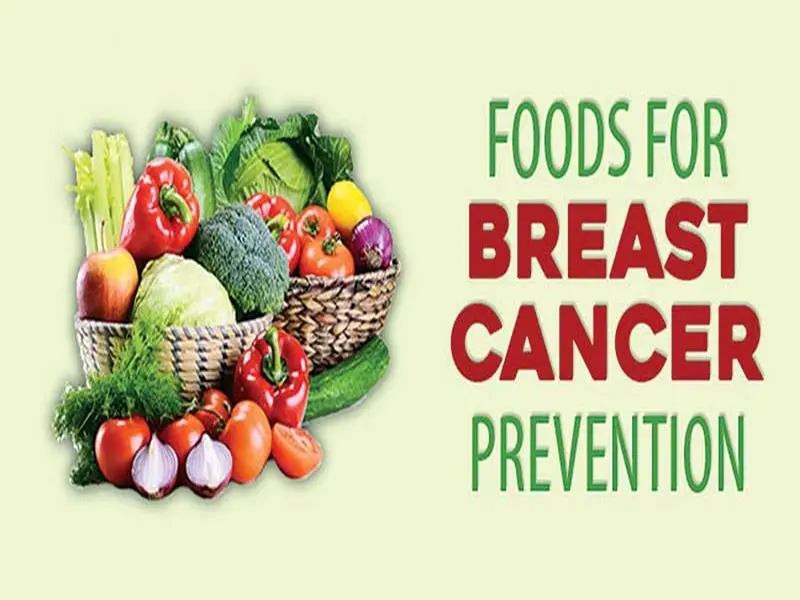
1. Antioxidant-Rich Fruits and Vegetables
Antioxidants help combat oxidative stress, a factor in cancer development. Incorporate a variety of colorful fruits and vegetables such as berries, oranges, tomatoes, spinach, and kale into your diet. These foods are rich in vitamins A, C, and E, which play a crucial role in protecting cells from damage.
2. Omega-3 Fatty Acids
Omega-3 fatty acids, found in fatty fish like salmon, mackerel, and sardines, as well as flaxseeds and walnuts, have anti-inflammatory properties. Regular consumption of these healthy fats can lower the risk of breast cancer and support heart health.
3. Whole Grains
Whole grains like brown rice, quinoa, and oats are excellent sources of fiber, which can help regulate blood sugar levels and support digestive health. Diets high in fiber are associated with a lower risk of breast cancer.
4. Cruciferous Vegetables
Cruciferous vegetables such as broccoli, cauliflower, Brussels sprouts, and cabbage contain compounds that may help reduce cancer risk. These vegetables are rich in sulforaphane and indole-3-carbinol, which have been shown to inhibit cancer cell growth.
5. Legumes
Beans, lentils, and peas are excellent plant-based protein sources that also provide fiber and essential nutrients. Including legumes in your diet can help maintain a healthy weight, which is important for reducing breast cancer risk.
Nutrition During Breast Cancer Treatment
During breast cancer treatment, maintaining a nutritious diet is crucial for supporting the body’s strength, managing side effects, and enhancing recovery. Here are some key nutrition tips for those undergoing treatment:
1. Stay Hydrated
Chemotherapy and radiation can cause dehydration. Drink plenty of water and include hydrating foods such as cucumber, watermelon, and soups in your diet.
2. Small, Frequent Meals
Treatment can affect appetite and cause nausea. Eating small, frequent meals can help ensure you get the necessary nutrients without overwhelming your stomach.
3. Protein-Rich Foods
Protein is essential for repairing tissues and maintaining muscle mass. Include lean meats, poultry, fish, eggs, dairy products, and plant-based proteins like tofu and tempeh in your meals.
4. Avoid Processed Foods
Processed foods can contain unhealthy fats, sugars, and additives that may exacerbate treatment side effects. Focus on whole, unprocessed foods to support overall health.
5. Manage Side Effects with Nutrition
Certain foods can help manage specific side effects of treatment. For example, ginger tea can alleviate nausea, while high-fiber foods can help with constipation. Consult with a healthcare provider or nutritionist for personalized advice.
Also Read: “Comprehensive Guide to Liver Cancer Diet and Nutrition“
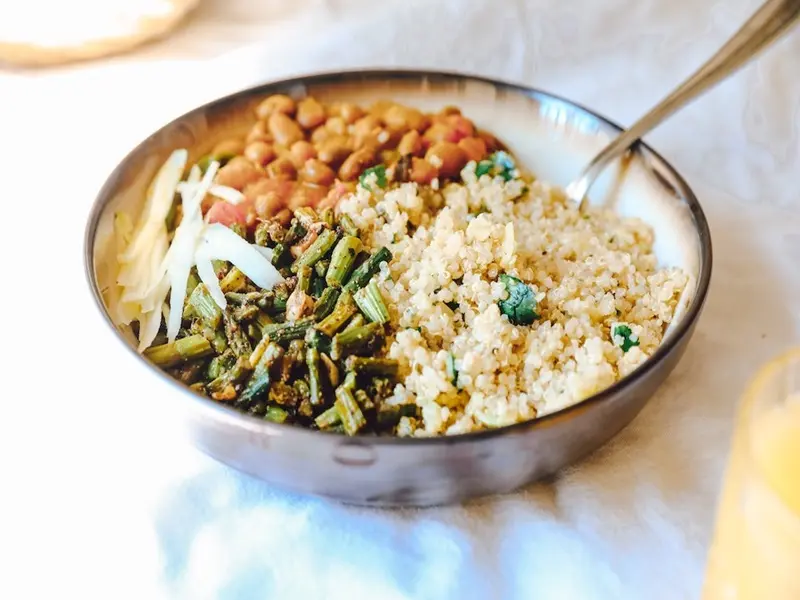
Breast Cancer-Friendly Meals and Recipes
Creating nutritious and delicious meals is an essential part of a breast cancer-friendly diet. Here are some meal ideas and recipes to inspire you:
Breakfast: Berry and Flaxseed Smoothie
Start your day with a nutrient-packed smoothie. Blend together:
- 1 cup of mixed berries (blueberries, strawberries, raspberries)
- 1 tablespoon of ground flaxseed
- 1 cup of unsweetened almond milk
- 1 teaspoon of honey (optional)
This smoothie is rich in antioxidants, omega-3s, and fiber.
Lunch: Quinoa and Black Bean Salad
A hearty and protein-rich salad. Combine:
- 1 cup of cooked quinoa
- 1 cup of black beans, rinsed and drained
- 1 cup of chopped vegetables (bell peppers, cucumbers, tomatoes)
- 1 avocado, diced
- 2 tablespoons of olive oil
- Juice of one lime
- Salt and pepper to taste
This salad provides plant-based protein, healthy fats, and a variety of vitamins and minerals.
Dinner: Baked Salmon with Steamed Broccoli
A simple yet nutritious dinner. Ingredients:
- 1 salmon fillet
- 2 cups of broccoli florets
- 1 tablespoon of olive oil
- Salt, pepper, and herbs (such as dill or rosemary) to taste
Instructions:
- Preheat the oven to 375°F (190°C).
- Place the salmon on a baking sheet, drizzle with olive oil, and season with salt, pepper, and herbs.
- Bake for 15-20 minutes or until the salmon is cooked through.
- Steam the broccoli until tender.
This meal is rich in omega-3s, protein, and essential vitamins.
Snack: Apple Slices with Almond Butter
A quick and healthy snack. Simply slice an apple and spread almond butter on each slice. This snack provides fiber, healthy fats, and protein.

Breast Cancer Nutrition Therapy
Nutrition therapy for breast cancer patients involves working with a registered dietitian to create a personalized eating plan. This plan addresses individual nutritional needs, manages treatment side effects, and supports overall health. Here are some general guidelines:
1. Balanced Diet
Ensure your diet includes a variety of foods to provide all essential nutrients. Focus on fruits, vegetables, whole grains, lean proteins, and healthy fats.
2. Limit Alcohol
Alcohol consumption is linked to an increased risk of breast cancer. If you choose to drink, do so in moderation.
3. Maintain a Healthy Weight
Being overweight or obese can increase the risk of breast cancer recurrence. Aim for a healthy weight through a balanced diet and regular physical activity.
4. Consider Supplements Carefully
While it’s best to get nutrients from food, some supplements may be beneficial. Discuss with your healthcare provider before starting any new supplements.
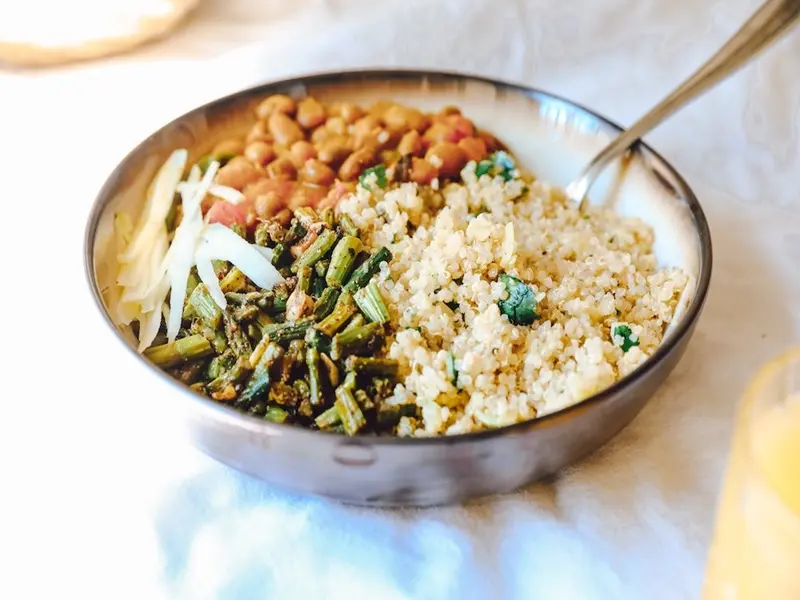
Breast Cancer Meal Ideas
Here are additional meal ideas to help you maintain a healthy and balanced diet:
Breakfast: Greek yogurt with honey, walnuts, and fresh berries.
Lunch: Whole grain wrap with hummus, spinach, and grilled chicken.
Dinner: Stir-fried tofu with mixed vegetables and brown rice.
Snack: Carrot sticks with hummus.
Ordering Healthy Food from IntRest
Navigating dietary needs during breast cancer can be challenging, but you don’t have to do it alone. IntRest offers a convenient solution for ordering healthy food tailored to your specific illness, diet, and allergies. Our platform categorizes restaurant menus to help you find breast cancer-friendly meals, ensuring you receive the nutrition you need to support your journey.
Conclusion
A well-balanced diet plays a crucial role in breast cancer prevention, treatment, and recovery. By incorporating nutrient-dense foods, managing side effects with specific nutrition strategies, and exploring delicious breast cancer-friendly recipes, you can nourish your body and support your health. Remember, you can order healthy food from IntRest tailored to your dietary needs, making it easier to maintain a nutritious diet throughout your journey.
